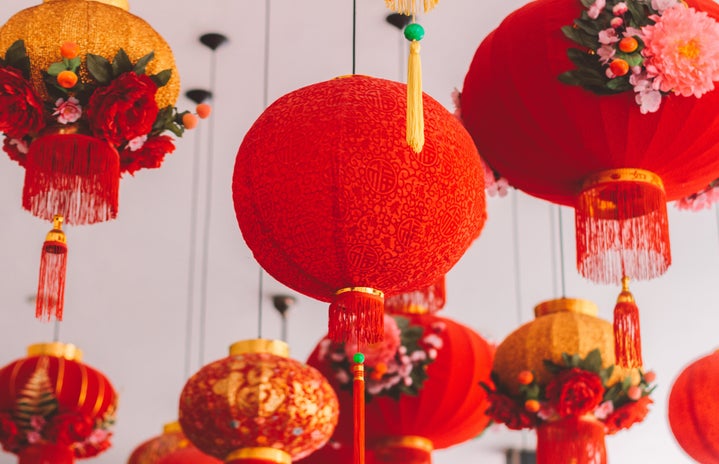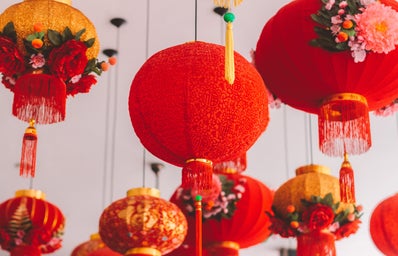Chinese New Year, also known as Lunar New Year or Spring Festival, is the most important festival in China and a major event in some other East Asian countries (Lunar New Year is known as Seollal in South Korea, Tet in Vietnam, and Tsagaan Sar in Mongolian).
Chinese New Year is the festival that celebrates the beginning of a new year on the traditional lunisolar Chinese calendar. It was traditionally a time to honour deities as well as ancestors, and it has also become a time to feast and to visit family members.
The celebrations traditionally last about two weeks in total, from Chinese New Year’s Eve to the Lantern Festival, held on the 15th day of the lunar year. Regional customs and traditions vary widely but share the same theme: seeing out the old year and welcoming in the luck and prosperity of a new year.
Chinese New Year 2022 will fall on Tuesday, February 1st, 2022, beginning a year of the Tiger. China’s public holiday will be from January 31st to February 6th, 2022.
2022 is the year of the Tiger. The recent and incoming Tiger years are 1950, 1962, 1974, 1986, 1998, 2010, and 2022. If you were born in one of these years, your Chinese zodiac sign is the Tiger which is associated with strength, bravery, and exorcising evils.
Chinese New Year Origin and Myth: Legend of Beast Nian
Chinese New Year has a history of over 3,000 years and is associated with several myths. A popular legend tells of the mythical beast Nian (/nyen/, which sounds the same as ‘year’ in Chinese), which shows up every Lunar New Year’s Eve to eat people and livestock. To scare away the monster, people displayed red paper, burned bamboo, lit candles, and wore red clothes. These traditions have been continued until the present time.
Chinese New Year Traditions
The main Chinese New Year activities include:
1. putting up decorations
People give their houses a thorough clean before the Spring Festival, which symbolises sweeping away the bad luck of the preceding year and making their homes ready to receive good luck.
Red is the main colour for the festival, as red is believed to be an auspicious colour for the Lunar New Year, denoting prosperity and energy — which ward off evil spirits and negativity.
2. Offering Sacrifices to ancestors
Many Chinese people visit ancestors’ graves on the day before the Chinese New Year’s Day, offer sacrifices of foods and drinks to ancestors before the reunion dinner (to show that they are letting their ancestors “eat” first).
3. Eating reunion dinner with family on New year’s eve
Chinese New Year (Lunar New Year) is a time for families to be together. Chinese New Year’s Eve is the most important time. Wherever they are, people are expected to be home to celebrate the festival with their families. The Chinese New Year’s Eve dinner is called ‘reunion dinner‘. Big families of several generations sit around round tables and enjoy the food and time together.
4. giving red envelopes and other gifts
The most common gifts are red envelopes filled with money. They are often given to children.
The red envelope (money) is called ya sui qian (压岁钱), which means ‘suppressing Sui [the demon]money’. Those who receive a red envelope are wished another safe and peaceful year.
5. Firecrackers and fireworks
From public displays in major cities to millions of private celebrations in China’s rural areas, setting off firecrackers and fireworks is an indispensable festive activity. It is a way to scare away the evil sprits and welcome the new year’s arrival.
Chinese New Year Food
Lucky food is served during the 16-day festival season, especially on the New Year’s Eve family reunion dinner. Dishes vary by region, but fish is a must as it sounds like ‘surplus’ in Chinese and symbolises abundance. Dumplings shaped like Chinese silver ingots are shared as a sign of the family unit and prosperity, they are usually eaten in northern China. People in the south of China might eat Niángāo (glutinous rice cake) to symbolise a higher income or position as it sounds like ‘year high’.
How to Say “Happy Chinese New Year” in Chinese
When people meet friends, relatives, colleagues, and even strangers during the festive period, they usually say “Xīnnián hǎo” (新年好), literally meaning ‘New Year Goodness’, or “Xīnnián kuàilè” (新年快乐), meaning ‘Happy Chinese New Year’.
I hope this article has given you a brief insight into Chinese New Year. I wish everyone a healthy and prosperous year ahead!


